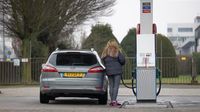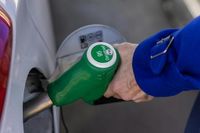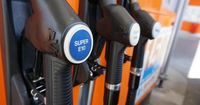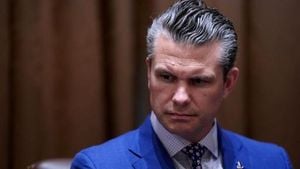As fuel prices continue to rise, concerns mount over the future cost of gasoline in the Netherlands. Minister Barry Madlener of Infrastructure and Water Management recently announced that the price of gasoline could soar to between 2.30 and 2.50 euros per liter by 2026, following the removal of a fuel tax discount that has been in place since 2022.
The impending changes are set to take effect on January 1, 2026, when the discount on fuel excise will disappear, resulting in a price hike of nearly 26 cents per liter. According to Madlener, this increase is a direct consequence of the government’s decision to phase out the discount, which was initially implemented to ease the burden on drivers amid soaring fuel prices.
"That is, of course, very unfortunate, but it is what will happen if we do nothing," Madlener remarked earlier this week, reflecting on the expected price surge. The current national average price for gasoline stands at approximately 2.10 euros per liter, although some stations still offer prices below the two-euro mark.
In addition to the excise increase, European regulations will further contribute to rising costs, with an additional increase of nearly 20 cents expected in the years following 2025. These regulations aim to promote sustainable driving, but they also put additional financial pressure on consumers.
BETA, the Dutch Association of Service Stations, has voiced urgent concerns over the rising costs, urging the government to take swift action. "For motorists, this is unmanageable. The difference with neighboring countries will become so large next year that border pump operators will be severely affected," the organization stated.
Meanwhile, the ANWB, a Dutch automobile association, has also called for the continuation of the excise discount, emphasizing that it remains justified. A spokesperson for the ANWB noted, "The excise discount was introduced to compensate for rising fuel prices. That discount is still necessary and justified. It is not a luxury to own a car, but a necessity."
While the government plans to increase the road tax for electric vehicles, Madlener believes that electric cars will still be an attractive option for many drivers. "That will mean a few hundred euros more per year that you have to pay, but in exchange, you won’t have to deal with the enormous increase in gasoline prices. So I think it remains attractive to drive an electric car," he stated.
This situation poses a significant challenge for the Dutch government as it balances the need for sustainable transport solutions with the immediate financial realities faced by drivers. With fuel prices on the rise, many are left wondering how they will manage the increasing costs.
As the government prepares to implement these changes, the public is left with questions about how these price increases will affect their daily lives. The potential for rising gasoline prices could lead to a broader discussion about the future of transportation in the Netherlands and the need for more sustainable alternatives.
In summary, the expected rise in gasoline prices due to the removal of the excise discount and European regulations has sparked concern among both consumers and industry representatives. As the government faces pressure to intervene, the future of fuel prices remains uncertain.






